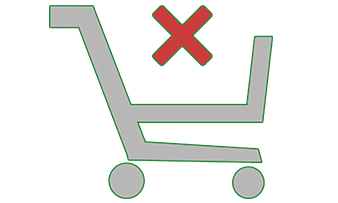Treat Your Furry friends with Best Supplements for Pets

Like we are becoming increasingly conscious about keeping healthy by taking the right food, exercise and supplements, our animal friends too need certainneed certain, like us, need certain nutrients for maintaining their optimal health. It’s now more common than ever to see whole lines of supplement products developed specifically for pets. So if you’ve got a beloved cat or dog, you might as well consider supplements to be part of their care?
Vitamins & Minerals
Most pet foods are carefully formulated to provide necessary nutrients required for pets. Although, some pets need the benefits of extra nutritional support, including pregnant or lactating animals, sick or convalescing animals, or animals receiving homemade food. Some animals require that extra support in the form of multivitamin-mineral combinations or at time, individual nutrients. This could be bone meal added to cat and dog food as a calcium or glucosamine source. This is frequently administered for joint problems in pets.

Herbs
Catnip, goldenseal, and cat’s claw are in general safe for cats. Ginger, milk thistle, and slippery elm can be used to safely treat different conditions in dogs. One must refrain from giving black walnut, chaparral, pennyroyal, or comfrey to pets. These herbs can be toxic.
Homeopathic Remedies
Homeopathy is a system of medicine based on the principle that a substance that causes certain symptoms in large doses may in fact help alleviate the same symptoms when taken in infinitesimally smaller doses. Homeopathic remedies are generally free of side effects and safe to use for animals.
Supplements as a part of daily nutritional needs
Multivitamin formulas for pets generally contain common vitamins: Vitamins A and C help support a healthy immune system and protect the body from free-radical damage. Vitamin E provides antioxidant support and eases pain in animals with arthritis. Like humans, B vitamins play a range of roles in animals’ bodies, from supporting red blood cell production to enhancing cellular energy production. Vitamin D, together with calcium aids can be given to support healthy bones and teeth.
They may also contain minerals such as magnesium, calcium, iron, zinc, and copper. Iron is known to support red blood cell formation and immune system functioning, zinc helps to keep skin healthy, magnesium is needed for proper nerve transmission, and copper helps maintain healthy connective tissue.

Supplements for Joint Health & Pain Relief
Glucosamine and chondroitin sulfate may help alleviate arthritis pain in animals. Boswellia (frankincense) is an herbal extract, usually given to decrease pain and other symptoms like lameness in animals with arthritis. Get dog vitamins for joints, Bromelain is sometimes given to animals suffering from conditions like arthritis or allergies. It is an enzyme derived from pineapple that inhibits inflammation and decreases histamine in the body.
Breath & Digestion
Spirulina, chlorella, and cereal grasses are frequently added to dog and cat treats to help freshen up breath.
Antibiotics can disturb the natural balance of bacteria in the gut. Hence, veterinarians often recommend giving animals a probiotic supplement to help counter this effect. Probiotics are often the first line of treatment in animals with intestinal upset with diarrhea.
Skin & Coat Health
Omega-3 fatty acids from fish oil are believed to help improve the coat and soothe irritated skin in cats and dogs. These supplements help decrease inflammation and thus make a good choice for animals with other conditions with an inflammatory component like allergies or heart disease.
Neem oil is used to help repel fleas and ticks on dogs. The oil can be applied directly to dogs’ coats or diluted for dogs with sensitive skin. One must be careful, as Cats may be sensitive to neem oil.
Importance of proper pet care can never be undermined. So, always check with your veterinarian before giving your pet any type of dietary supplement.









































